How to Enhance Food Safety with Commercial Refrigeration Monitoring Systems in Your Business
Table of Contents
- Benefits of Implementing Refrigeration Monitoring Systems in Food Safety
- Key Features to Look for in Commercial Refrigeration Monitoring Systems
- Steps to Set Up an Effective Food Safety Monitoring System
- Training Employees on the Importance of Refrigeration Monitoring
- Regular Maintenance Practices for Refrigeration Systems to Ensure Safety
- Compliance with Food Safety Regulations Using Monitoring Technologies
- FAQS
- Conclusion
- Related Posts
Lately, there's been a real uptick in attention to food safety in the hospitality and retail worlds, and for good reason—this is where Commercial Refrigeration Monitoring Systems come into play. The FDA recently reported that about 20% of foodborne illnesses come from improper storage, which really highlights how critical good temperature control is for keeping food safe and fresh.

Here at Guangxi Cooler Refrigeration Equipment Co., Ltd., we totally get these challenges, and that’s why we offer complete cold storage solutions—from the initial planning and design all the way to supplying the equipment. Our goal is to help businesses keep their products at just the right temperature. By using our advanced refrigeration monitoring systems, companies can cut down on spoilage and avoid running into regulatory issues. That means better safety, happier customers, and peace of mind.
With our one-on-one, professional service, we want to make the whole process smooth and straightforward, so our clients across different industries can truly feel confident in protecting their perishable goods.
Benefits of Implementing Refrigeration Monitoring Systems in Food Safety
If you ask me, installing refrigeration monitoring systems is a game-changer for food safety in the foodservice world. I mean, the FDA has shown that temperature mishaps are one of the main reasons for foodborne illnesses — almost 48 million folks get sick every year just in the US alone! Making sure temps stay just right is so important for keeping perishable stuff fresh and safe. That’s where these high-tech monitoring systems come in—they give you real-time updates and alerts, so you can catch spoilage or contamination before it becomes a big problem.
And here’s another interesting bit: according to the Food Safety and Inspection Service, businesses that use these smart monitoring systems can cut down on food waste by up to 25%. Not only does that help keep the food safe, but it also makes managing inventory a whole lot easier. Plus, with features like automatic alerts and data logs, following the rules and standards becomes way less of a hassle. Honestly, investing in refrigeration tech isn’t just a good idea — it’s pretty much essential for better food safety and saving some cash in the long run.
How to Enhance Food Safety with Commercial Refrigeration Monitoring Systems in Your Business - Benefits of Implementing Refrigeration Monitoring Systems in Food Safety
| Dimension | Description | Impact on Food Safety | Implementation Cost |
|---|---|---|---|
| Temperature Control | Automated monitoring of refrigerator temperatures | Reduces risk of food spoilage and bacterial growth | $500 - $2000 |
| Alerts and Notifications | Real-time notifications for temperature fluctuations | Enables quick response to potential issues | $300 - $1500 |
| Data Logging | Continuous log of temperature data for compliance | Facilitates audits and compliance with safety regulations | $200 - $1000 |
| Remote Monitoring | Access temperature data from anywhere | Enhances peace of mind for business owners | $400 - $1200 |
| Integration with Other Systems | Connects with inventory and management systems | Improves overall operational efficiency | $600 - $2500 |
Key Features to Look for in Commercial Refrigeration Monitoring Systems
When you're choosing a commercial fridge monitoring system, it’s really important to focus on the features that keep food safe. One of the most crucial things is really having real-time temperature checks. The FDA highlights that a huge number of foodborne illnesses—around 48 million cases each year—are often caused by poor temperature control. So, a good system should have sensors that constantly keep an eye on the temperatures, and if anything goes off, it should send immediate alerts to help prevent food from going bad.

Another key factor is data logging. The GFSI points out how vital it is to keep detailed records of refrigeration conditions, mainly to stay in line with safety standards and regulations. Modern monitoring systems can store all this historical data, which makes it easier for businesses to spot patterns and make smarter decisions about how they handle their refrigeration. Not only does this help with compliance, but it also gives you a head start on managing potential issues before they become bigger problems, ultimately creating a safer environment for everyone eating the food.
Steps to Set Up an Effective Food Safety Monitoring System
Setting up a solid food safety monitoring system might not sound like the most exciting part of running a food business,
but trust me, it’s super important—especially if you're using commercial refrigerators.
Did you know that, according to the FDA, improper refrigeration can cause foodborne illnesses
that affect around 48 million people in the U.S. every year? That’s a huge deal. So, investing in smarter monitoring tech
can really help cut down on those temperature mishaps that put your food at risk.
One of the best ways to step up your food safety game is by using real-time monitoring systems. These nifty devices send alerts if temperatures go out of whack,
giving you a chance to fix things before your food gets spoiled. Plus, with cloud-based systems, you can check on things remotely—great for busy days
when you're not around the fridge all the time.
Quick tip: Make it a habit to train your staff regularly on why food safety matters and how to properly use the monitoring tools.
Employees who know what to look for tend to catch issues early and respond faster.
Another tip: Don’t forget to do routine maintenance and run occasional audits on your refrigeration units. Staying on top of this stuff
keeps your equipment running smoothly and helps you stay compliant with health regulations. Sticking to a regular monitoring schedule
really pays off when it comes to keeping your food safe and fresh.
Training Employees on the Importance of Refrigeration Monitoring
Training employees on how important proper refrigeration is might not sound exciting, but trust me, it’s a game-changer for food safety in any business. When folks understand how even tiny temperature swings can mess with food quality and safety, they tend to pay a lot more attention to what they’re doing every day. It’s a good idea to have regular training that dives into the specific risks of not keeping things cold enough—like bacteria multiplying or food going bad—and sharing real-life stories to show just what’s at stake. Making these sessions interactive and engaging, like with workshops or hands-on demos, really helps everyone remember and feel more responsible about food safety standards.
And honestly, it’s not just about sitting through a lecture. Businesses should give staff some practical training on how to use refrigeration monitoring systems. Employees need to recognize the signs of a system working correctly—things like the right temperature ranges and knowing how to respond if an alert pops up. When you give your team the right tools and confidence to keep an eye on refrigeration, you’re helping prevent problems before they start. It’s a win all around: better food safety, healthier customers, and a solid reputation for your business. Plus, it’s just a good way to stay one step ahead and avoid those costly foodborne illness issues that nobody wants to deal with.
Regular Maintenance Practices for Refrigeration Systems to Ensure Safety
Hey there! If you're in the food business or handling perishable stuff, keeping up with regular maintenance on your refrigeration units is honestly a game-changer for keeping things safe. The FDA pointed out that poor temperature control is one of the main reasons for foodborne illnesses, hitting around 48 million people in the U.S. each year. That’s a huge number, right? So, to cut down on that risk, it’s a smart move to set up routine check-ups—think of it as giving your coolers a quick health check. This means popping the hood now and then to look for leaks, making sure door seals are snug, and calibrating those temperature controls so they stay accurate.

A few tips I’d suggest? First, try to do monthly inspections—better safe than sorry, and catching issues early can save you a lot of trouble. Don’t forget to clean those condenser coils regularly; it helps your system run more efficiently and keeps energy costs down. And if you notice seals that are worn out or damaged, don’t drag your feet—swap them out pronto to avoid temperature swings that could spoil your stuff.
Oh, and if you're really serious about safety, investing in a modern refrigeration monitoring system can make a big difference. These gadgets track temperature and humidity in real time and send alerts if things go off track, so your team can act fast. In fact, a study in the Journal of Food Protection found that businesses using these systems saw up to a 30% drop in food spoilage incidents. Combining regular maintenance with these tech tools is definitely the way to go for keeping your food safe and your operations running smoothly.
Compliance with Food Safety Regulations Using Monitoring Technologies
In today’s competitive world, businesses really need to focus on sticking to food safety rules — it’s all about keeping your customers safe and healthy, after all. One smart move? Using commercial refrigeration monitoring systems. These gadgets keep an eye on the temperature inside your units all the time, which is super important for keeping perishable foods fresh and good quality. Making sure your fridge stays at the right temp doesn’t just protect your food—it also helps you stay on the right side of local and federal food safety laws, so you avoid fines or trouble down the line.
Plus, these systems aren’t just about monitoring your fridge—they can send instant alerts if something goes wrong, like if temperatures go out of range. That way, you can jump in quickly and fix the issue before things get spoiled or contaminated. Staying ahead of problems is a huge win for keeping your food safe and maintaining a good reputation. In today’s health-conscious world, that trust from your customers really matters. So, investing in some good commercial refrigeration monitoring isn’t just smart—it's essential if you want to keep your business legit and your food safe.
FAQS
: It is crucial because improper refrigeration can lead to foodborne illnesses affecting about 48 million people in the U.S. each year. An effective monitoring system reduces risks associated with temperature fluctuations.
Implementing real-time monitoring systems that provide alerts for temperature breaches allows businesses to take immediate corrective actions before food spoils.
Utilizing cloud-based solutions enables operators to access data remotely, ensuring continuous oversight of critical refrigeration units.
Training employees on refrigeration monitoring helps them understand the impact of temperature fluctuations on food quality and safety, making them more vigilant in their daily tasks.
Sessions should focus on risks associated with improper refrigeration, specific temperature ranges, alert systems for anomalies, and include real-world examples to emphasize the potential consequences.
Businesses should schedule monthly inspections and conduct routine maintenance practices to detect and address potential issues early, ensuring optimal performance.
Tips include checking for leaks, ensuring door seals are intact, regularly calibrating temperature controls, and cleaning condenser coils to improve efficiency.
These systems provide real-time data on temperature and humidity levels, alerting staff to deviations that could compromise food safety, thus reducing food spoilage incidents.
This combination can significantly enhance safety, operational efficiency, and reduce the risk of foodborne illnesses linked to improper refrigeration practices.
Employees should learn about bacterial growth and food spoilage that can result from temperature fluctuations, emphasizing the importance of vigilant monitoring practices.
Conclusion
If your business deals with perishable goods, setting up a good refrigeration monitoring system is pretty much essential. It’s a real game-changer for keeping food safe—think real-time temperature checks, automatic alerts if something’s off, and staying on top of food safety rules without breaking a sweat. When you're choosing a system, look for ones that are easy to connect, simple to use, and capable of keeping detailed records. That way, it’s less of a hassle and more of a helpful tool.
Getting started with a food safety monitoring setup doesn’t have to be complicated. Just start by figuring out what your refrigeration needs are, pick the right technology, and make sure your team knows why it matters. Don’t forget – regular maintenance is key to keeping everything running smoothly and reliably. Companies like Guangxi Cooler Refrigeration Equipment Co., Ltd. are great partners—they handle everything from planning and design to supplying the equipment, making the whole process easier so you can focus on what matters most: keeping your products safe and fresh.
Honestly, investing a little time and effort here can really pay off for your business’s safety and peace of mind.
Related Posts
-
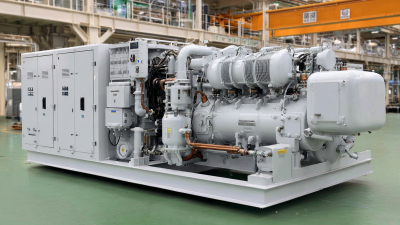
Top Strategies for Sourcing High Quality Freezer Compressors Globally
-
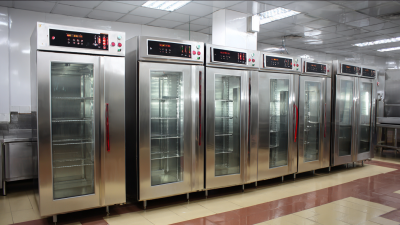
5 Best Commercial Refrigeration Equipment Manufacturers for Your Business Success
-
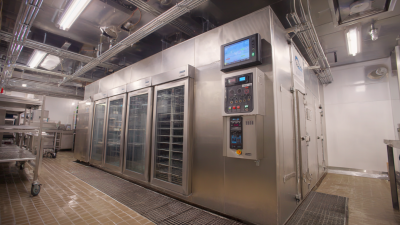
How to Choose the Right Walk In Cooler Condensing Unit for Optimal Energy Efficiency
-
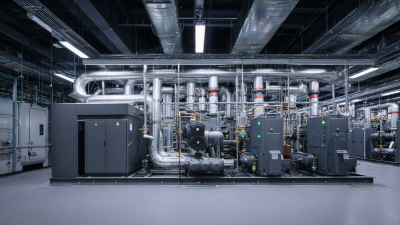
7 Essential Tips for Maximizing Efficiency with Cooled Condensing Systems
-
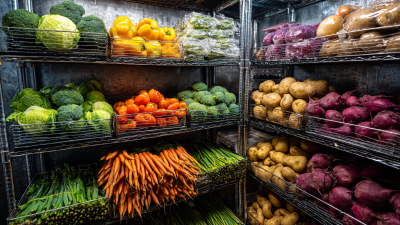
5 Essential Tips for Maximizing Efficiency in Vegetables Cold Storage
-
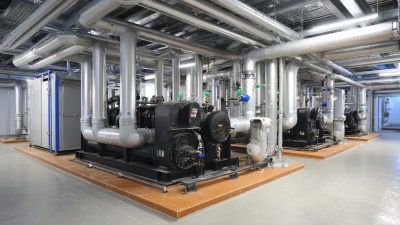
Top Strategies for Enhancing Efficiency with Evaporator Unit Technology
Blog Tags:

